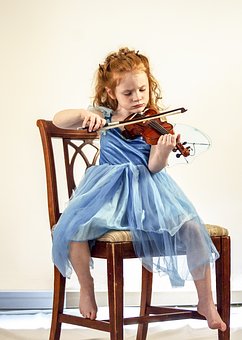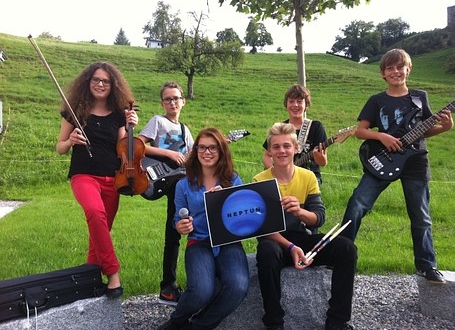Music is something that everyone enjoys. Whenever you feel tired, you can listen to music and you will surely feel better. In this time where education is no longer focused on the pure academic field, children are encouraged to take music classes. This is something that can be advantageous in the development of the different aspects of their lives.There are different things that they can learn when you consider music education for your children. They can start with the basic information they need to learn. And after learning the general concept, they can now go on with specializations that will consider their talents and interests. They can learn to sing and play instruments. And most of all, they will be able to develop other skills.
Why Children Need Music Education?
Here are the most important reasons why children need music education:
Music helps develop language, literacy and communication skills
As the cliché goes, music is the universal language of the world. It teaches people to communicate in a creative way. For children, music can be very helpful in developing language, literacy and communication skills. If you are going to let your kids take music lessons, they will begin to develop confidence in themselves. This is a great start where they will be able to learn to develop how to speak. Sometimes, the problem, why children have problems related to language and literacy is that they were not given the right head start.
By learning about notes and how to properly identify them, children also learn how to communicate well. It is an indirect way for you to let your children talk, answer and express. They do not only learn how to listen to and play music. They will definitely see themselves learning to become more responsive. It takes a lot of practice before a person can determine notes just by hearing it. And it has to start by properly communicating the notes.
Music education encourages early brain development

Healthy brain development occurs when children start to open their minds to patterns and how things work. When a child starts to learn how to play an instrument, he will be taught about basic note reading. By identifying the difference and how things work together to arrive at a good sound, he or she is encouraged to think outside the box. This is a great start on brain development.
Music helps develop social skills
One of the things that children will learn when they are enrolled in music is how to get along with other kids who are also there to learn. Aside from the regular session with the teacher, there will be times when collaboration with other music students is needed. And if they want to produce good music as a group, they need to know how to communicate with each other. This is a good start for these kids to know how to meet in the middle and how to learn from each other.
There will also be times when they will be asked to play in front of other people. This is a great way for them to be exposed and for them to conquer their fear of a crowd. Given the right words and enough guidance, your child will surely learn how to socialize if you are going to let him or her learn music.
Music improves test scores
Music will bring out the creativity in children. It has a way of improving how children think and how they see the world. This is something that can be observed when they compose their literary pieces and their essays. Children who are exposed to music and who were taught at a very early age grow up to become artistic. It gives them that advantage and you will realize how easy it will be for them to express themselves.
Music is a form of expression. People who play instruments and sing are not just moving their fingers and letting the sound go out of their mouth; they are expressing themselves. There is a great connection between expression, creativity, and writing. If you are going to expose your child to music at an early age, you will certainly lead him or her to a better understanding of expression and how to creatively use his or her knowledge in creating a piece.
Music teaches them discipline
All the greatest musicians have a common denominator and that is discipline. You will not be able to play a perfect piece if you do not possess this very important value. As children learn more about music, you will notice that they will also learn how to wait for the proper timing. This is the secret to beautiful songs. You will not just play the guitar or you will not just sing any time you want. You need to learn how to wait for your turn.
Most children only want to get what they want. Some would even throw tantrums or even show the worst behaviour if they want to get something. These should not be tolerated. However, you should look for the best ways that will not hurt the children. Teach them the right lessons in a way that will not leave the scars. Let them music education.
It is very important for children to appreciate music while they are still young. If you are having a hard time teaching them how to behave when they are in front of other people, you should enrol them in a music school. There are a lot of benefits that you will be able to get from music. Let your children explore their talent. Let them choose the best instrument that they are interested to play. It will not only give them the chance to learn the basics of music, it will surely leave them with lessons that they can use for the rest of their lives. This is a great investment that you should never underestimate.
Curtis Dean writes on behalf of Sage Music School where they base lessons on the science and research of the psychology of learning. Their effective teaching methods create confident and capable students who enjoy the happiness of making music.







